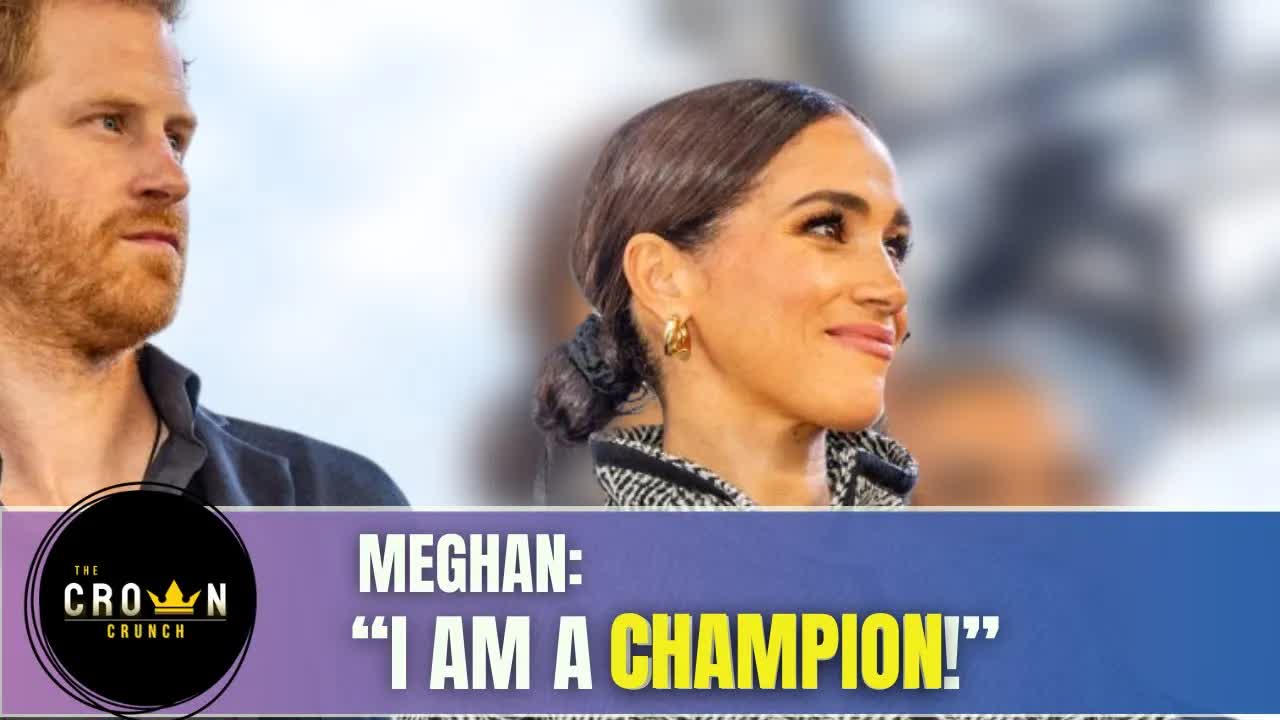The News
New Website Launch: Sussexes’ Royal Rebrand Raises Eyebrows
The Sussexes have officially launched their new website, and it's causing quite a stir.
Dubbed Sussex.com, the site features an eye-catching royal crest gifted to Meghan by Queen Elizabeth during her marriage into the family.
This royal flair seems ironic, especially considering the couple's well-documented disdain for the monarchy.
As you dive into the content, the initial shock gives way to a sense of humor that can't be ignored.
Upon entering the site, visitors are greeted with a large image of the couple, which appears to be one of their favorites.
However, Meghan's expression strikes a familiar note—reminding many of Kristen Wiig's exaggeratedly cheerful portrayal in “Bridesmaids.”
It's hard not to chuckle as we navigate through the self-indulgent biographies that are, frankly, cringeworthy at best.
Let's break down the “About” section, where the Sussexes claim they are “shaping the future through business and philanthropy.” This assertion raises eyebrows, particularly when their business ventures seem sparse and their philanthropic efforts have been minimal in recent years.
Sure, they've been involved with the Invictus Games, but attending a Beyoncé concert and handing out awards hardly qualifies as meaningful charity work.
The notion that they believe they are pivotal in shaping the future is almost laughable.
How inflated must one's ego be to declare oneself a key player in shaping global progress?
When it comes to impactful figures, Leonardo DiCaprio, for example, has made significant contributions without ever claiming such lofty titles.
In reality, the Sussexes appear to have mastered the art of public relations missteps, transforming from beloved royals to two of the most unpopular figures in the public eye.
As amusing as this all sounds, Meghan's self-description as a “champion of human rights” is particularly striking.
It's hard to see how she's advocated for anyone beyond herself.
Her strained relationships with her father and extended family contradict the idea of championing human rights.
Watching her father plead to see his grandchildren is heartbreaking and raises questions about her commitment to family.
With King Charles facing health challenges, one might expect a moment of reconciliation, but Meghan's allegations against him don't lend themselves to healing.
Calling someone a racist without providing context only serves to obscure the truth.
If she were to reveal the specifics of those conversations, it's likely the public would see them as typical family drama rather than racism.
Meghan's biography lists achievements that often appear to have been handed to her rather than earned.
She claims recognition for her compassion and advocacy for women, yet there's little evidence of her supporting notable figures like Catherine, Princess of Wales, or even her own half-sister.
During her trip to Africa, instead of focusing on the women she aimed to help, she managed to turn the narrative back to herself.
Meghan's reluctance to acknowledge powerful women, like the late Queen, raises further questions.
Celebrating the successes of strong women should be a cornerstone of feminism, yet her actions suggest otherwise.
Her struggles with the monarchy and the national anthem seem more about personal grievances than genuine empowerment.
Harry's biography, while slightly more palatable, still leaves much to be desired.
Influenced by his mother's legacy, he has engaged with charities, particularly in Africa.
However, given his controversial status, there are concerns that his involvement may detract from the causes he once championed.
Soldiers and veterans deserve a representative who embodies the values they fought for, not someone perceived as turning against his own country.
The mission statement of the Archibald Foundation, which states “show up, do good,” is ironic when viewed in light of Harry's recent behavior.
Instead of embodying this ethos, his actions over the past few years suggest a more fitting motto might be “sit back and keep complaining.”
This new branding effort feels disingenuous, especially given its overt royal influences.
From the crest to the use of their titles, it's clear the Sussexes are leaning heavily into their royal past, despite publicly distancing themselves from the institution.
Their connections with Jamaican politicians, who advocate for the removal of the monarchy, further complicate their narrative.
Critics have pointed out the troubling implications of their rebranding.
Some argue that they seem to think a fresh coat of paint will erase the past controversies.
But many see through this facade, recognizing that their new venture is merely a different shade of the same old strategy.
Instead of embracing a unique identity, they've opted for a royal theme that feels both tone-deaf and opportunistic.
In a time when the royal family is navigating its own challenges, the Sussexes' choice to adopt such a regal aesthetic is puzzling.
It raises eyebrows and sparks conversations about authenticity, timing, and the true meaning of humanitarianism.






























































